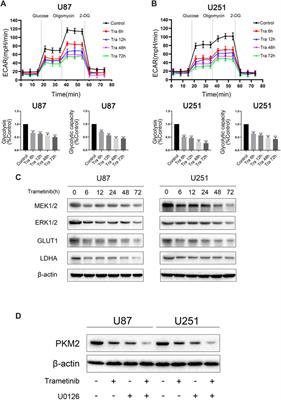Customer Publication

Trametinib Inhibits the Growth and Aerobic Glycolysis of Glioma Cells by Targeting the PKM2/c-Myc Axis
Journal: Frontiers in Pharmacology (2021)
Institution: Shengjing Hospital of China Medical University
Research Areas: Cancer Research
Cell Lines: U87 and U251 (Human glioma cells)
Summary: Gliomas are primary tumors originating from glial progenitor cells. Previous studies found that trametinib can improve the prognosis of patients with melanoma brain metastases. In this study, Gao and colleagues investigated the therapeutic effects of trametinib on gliomas in vivo and in vitro. They found that trametinib can inhibit proliferation, migration, and invasion of glioma cells, while inducing apoptosis of glioma cells. Specifically, trametinib can suppress both the expression of PKM2 in glioma cells and the transport of PKM2 into the cellular nucleus via suppression of ERK1/2 expression. However, inhibition of these cellular effects and intracellular glycolysis levels were reversed by overexpressing PKM2 in glioma cells. They also found inhibition of c-myc with trametinib treatment, but its expression could be increased by overexpressing PKM2. These inhibitory effects were also confirmed in vivo. The study suggested that trametinib may inhibit glioma cells' growth and intracellular glycolysis by targeting the PKM2/c-myc pathway.HoloMonitor M4 was used to study the migration ability of glioma cells treated by trametinib.